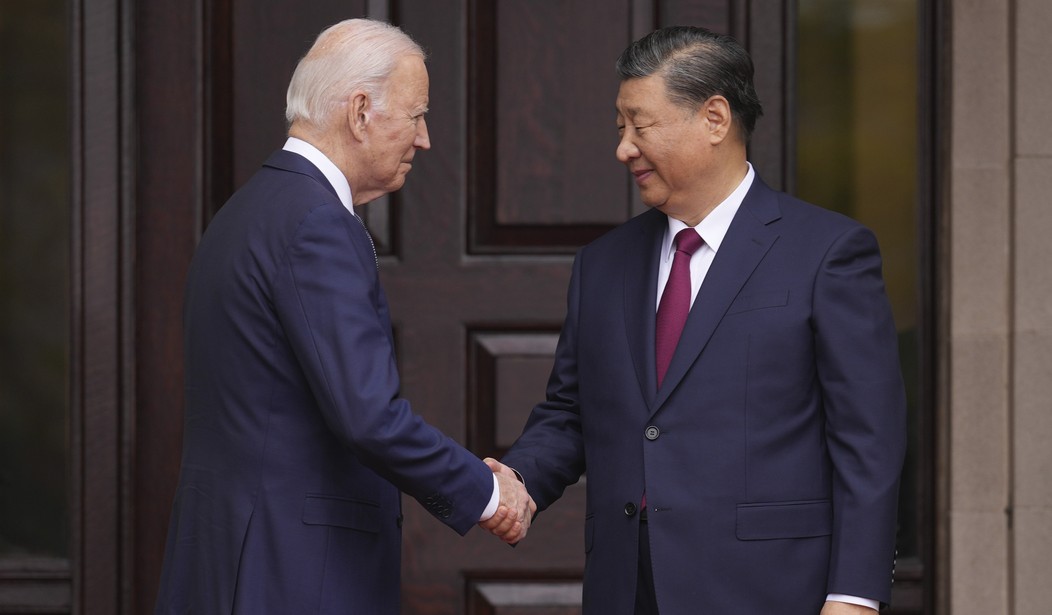Between a recent round of new sanctions on China and the race to force the sale of TikTok or ban it, America's already fraying relationship with China has been growing even chillier. Add to that the mounting tensions over the situation with Taiwan and you have a recipe for a confrontation of some sort, but what would that look like? Both sides appear to be trying to avoid a hot war, but we seem to be slipping closer and closer to a cold war, assuming we're not in one already, despite the Biden administration's claims. At Bloomberg, Niall Ferguson hosted a panel of analysts to examine the question and none of them appear terribly optimistic about the outlook for the United States. The reality is that we spent so long economically embedding ourselves with Beijing that a serious economic confrontation could wind up hurting the United States more than it would China.
Suppose They Gave a War and Nobody Came? was the title of a cheesy 1970 film that captured the anti-Vietnam Zeitgeist. But suppose they gave a cold war and you couldn’t afford it? Half a century later, that is the question the US needs to ask itself.
The debate on Cold War II is heating up. On Tuesday I chaired a fascinating symposium on “Cold Wars” — plural — at the Hoover Institution in California. We gathered together, in person or over Zoom, a pretty good proportion of the leading historians in the field. After a day of debate, three different schools of thought had emerged.
Those siding with me in believing that we are already in a second cold war included George Takach, the author of Cold War 2.0, for whom the contest between the US and China is primarily technological; Dmitri Alperovitch, co-founder of the cybersecurity firm CrowdStrike and author of World on the Brink, who shares my view that we are approaching a Taiwan Crisis as dangerous as the Cuban Missile Crisis of 1962; and the Soviet-born historian Sergey Radchenko, whose meticulously researched To Run the World has just been published by Cambridge and argues that the USSR leadership was motivated more by historically rooted psychological insecurities than by Marxist-Leninist ideology.
The outlook isn't entirely dire. One of the analysts that Ferguson spoke with said that the Sino-American relationship is rocky at the moment, but it's still nowhere near as "cold" as our relationship with the USSR was during the early stages of the Cold War. Xi Jinping has recently taken to invoking the phrase "peaceful coexistence" when discussing relations with the United States. Xi doesn't want to completely disengage with us economically if he can avoid it, but he simultaneously needs room to maneuver and maintain good relations with Russia and other nations.
Other analysts were not so sure. One of them from the Hoover Institution is convinced that not only are we already in what passes for a cold war with China, but the situation could escalate rapidly because of the formation of what we've been calling the new axis of evil between China, Russia, and Iran, along with a few others. He feels that the seemingly peaceful exchanges between US diplomats and China are little more than a "facade" that Xi Jinping is happy to maintain as long as it's profitable for China, but one which would be quickly abandoned if push literally comes to shove.
The ongoing situation in Ukraine has made the situation all the more tenuous. The United States and most of NATO have clearly sided with Ukraine, with the exception of Turkey. China and Iran are solidly in Russia's camp. There are constant concerns that the war in Ukraine could escalate at some point, with Vladimir Putin raising the stakes by either launching a fresh attempt to take Kyiv or breaking out some of his nukes. What happens next if that situation comes to pass? Everyone has pretty much been forced to take sides in this dispute, and China's loyalties are obvious.
Returning to the original question, however, let's assume that "Cold War 2" remains cold but grows increasingly combative economically. A similar situation is already playing out with Russia. Our current foreign policy is to keep shouldering the cost of proxy wars without putting American "boots on the ground." That probably makes sense in terms of avoiding a full-blown World War 3, but it's draining our resources at an alarming rate. Stepping up the tariffs and sanctions against China while they still control so much of the global supply chain could and almost certainly will result in prices for American consumers being driven up even further. Our focus on shifting to "green energy" and electric vehicles relies heavily on China for lithium and other components. And you probably don't need to be reminded that our national debt has already surged past $35 trillion and it's still climbing.
The reality may be that we simply can't afford a full-blown Cold War with China. But what's the alternative? A hot war should be out of the question. If that's the case, we may have no alternative but to turn a blind eye to the CCP's bad behavior as long as they're not directly intervening inside the United States and focus more on productive trade relations than intervening in other countries' various wars and troubles. But that puts us back on more of an isolationist footing, which is precisely what both China and Russia would like to see. There simply may not be many good options at this point, sadly.








Join the conversation as a VIP Member